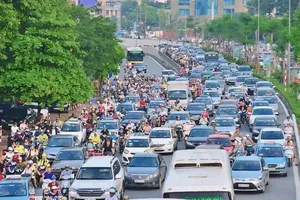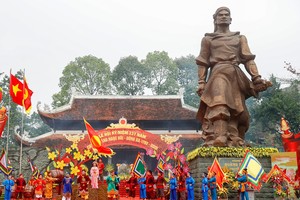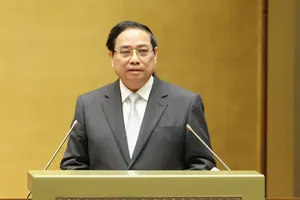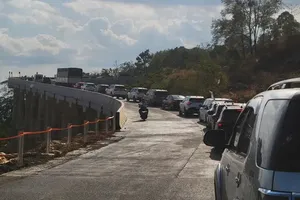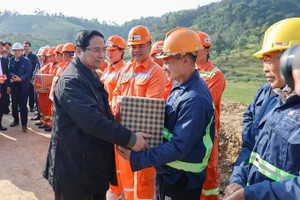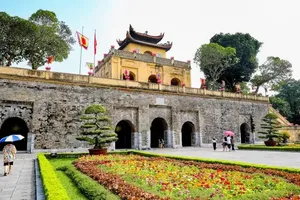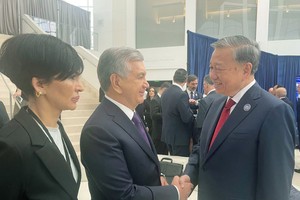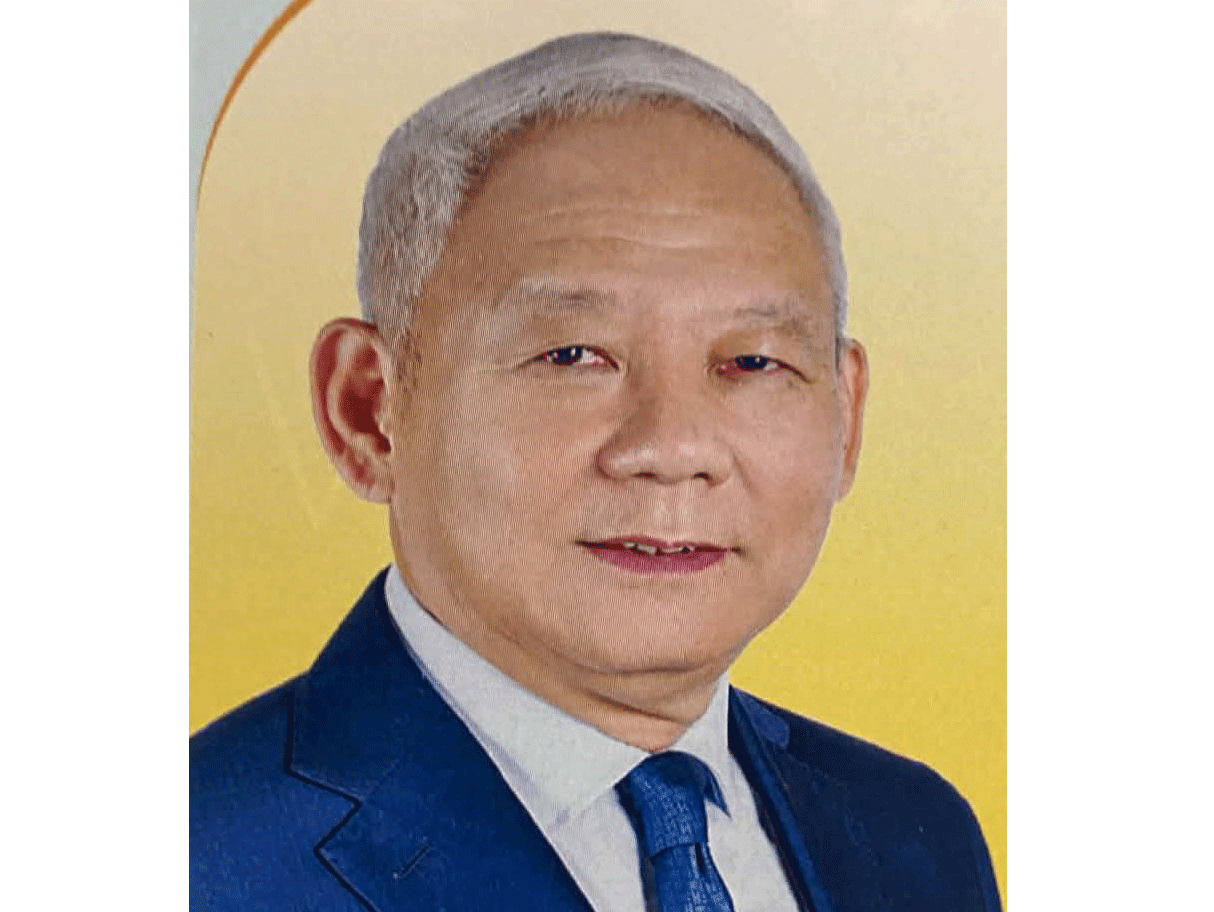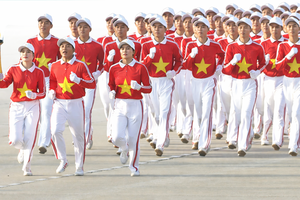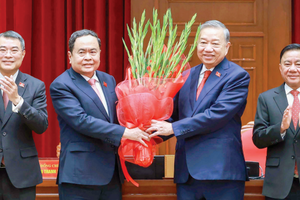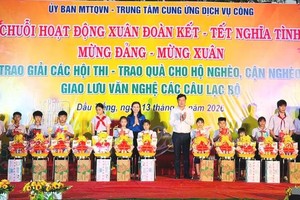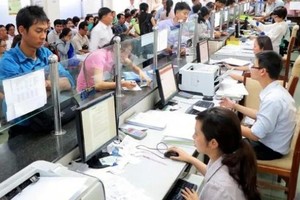PM Chinh urged the sector to truly renew its mindset and create development spaces so that culture, sports, and tourism can "take off" in the spirit of "dare to think, dare to act, and dare to take responsibility" for the common good.
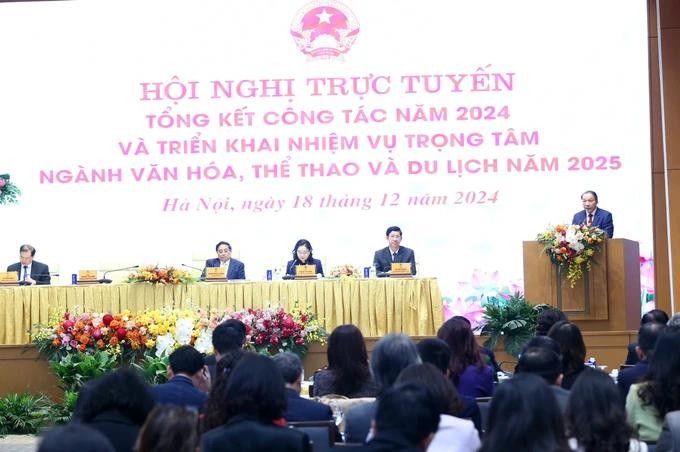
He instructed the sector to make breakthroughs in institutions to transform the values of cultural assets into resources and drivers for development, especially by innovating thinking, eliminating the thinking of "if we can't manage it, we ban it," and removing the "ask-and-give" mechanism.
It is necessary to promote decentralisation, reduce and simplify administrative procedures and cumbersome business conditions, step up digital transformation, and focus on training human resources, stressed PM Chinh.
The Government leader highlighted the need to preserve, restore, and strongly promote the cultural heritage of the nation, especially those of ethnic minorities; promote cultural movements and activities in a practical and flexible direction, with the people put at the center; and effectively mobilise and utilise resources, and promote public-private partnerships to develop infrastructure, especially digital infrastructure.
He called for solutions to popularise the habit of practising physical exercise and sports; enhance physical education and sports in schools to contribute to "creating a source" for high-performance sports; invest strategically in sports where Vietnam has advantages and Olympic events; and prepare teams for major regional, continental, and global sports events and competitions.
In addition, breakthrough and strong solutions are needed to develop tourism and accelerate the formation of a smart tourism ecosystem associated with comprehensive digital transformation, the PM said, suggesting the sector consider the launch of a movement for professional services, civilised behaviors, and a clean and green environment.
Recalling the late President Ho Chi Minh's saying that "Culture lights the way for the nation," the Prime Minister emphasised that culture is the enduring strength of the nation. Meanwhile, the development of physical education and sports is an objective, indispensable requirement, contributing to the formation of a strong and healthy nation; and tourism is a key economic sector.
Therefore, the entire sector plays an important role, with widespread, comprehensive, and global impact, which is both urgent and strategic for the socio-economic development of the country, he affirmed. The conference looked back at the sector's performance over the past year, highlighting the attention paid to the development of cultural industries which brought about positive results, and remarkable progress in heritage conservation.
In 2024, Vietnam had two new UNESCO-recognised heritage, namely the castings on the Nine Dynastic Urns in the Hue Imperial Palace listed as documentary heritage of the Asia-Pacific region by the Memory of the World Asia-Pacific Committee; and the Ba Chua Xu (Holy Mother of the Realm) Festival on Mount Sam in the Mekong Delta province of An Giang inscribed into the list of Intangible Cultural Heritage of Humanity.
Vietnamese sports have made a strong impression at international sporting events, winning a total of 1,214 medals, including 482 gold, 360 silver, and 372 bronze. Notably, the Vietnamese women’s volleyball team won its first-ever world championship medal and claimed the Asian Volleyball Confederation (AVC) Challenge Cup for Women 2024 title for the second time.
Meanwhile, the tourism sector has welcomed 17.5 million foreign tourists, up 38.9 percent year on year, and around 110 million domestic visitors, up 1.6 percent year-on-year. Total revenue from tourism is estimated at around VND840 trillion (US$33 billion), an increase of 23.8 percent compared to the same period last year.
In 2024, the Ministry of Culture, Sports, and Tourism signed 11 international cooperation agreements during visits by high-ranking leaders of the Party and State.
